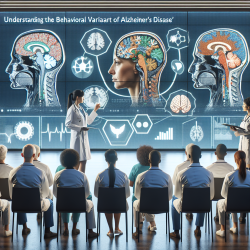Introduction
In the fast-paced world of healthcare, diagnostics play a crucial role in patient care. The recent findings from The Lancet Commission on diagnostics highlight the transformative potential of improving access to diagnostics. As a practitioner, you have the power to enhance your skills and contribute to this transformation. Let's dive into the key takeaways from the research and explore how you can implement these insights into your practice.
The Importance of Diagnostics
Diagnostics are central to effective healthcare delivery. They are not only vital for diagnosing diseases but also for guiding treatment, monitoring progress, and ensuring successful patient outcomes. However, access to quality diagnostics remains a challenge in many parts of the world, particularly in low-income and middle-income countries.
Key Findings from The Lancet Commission
- Global Access Gap: Nearly half of the world's population lacks access to essential diagnostics.
- Impact on Health Outcomes: Improving diagnostic access could prevent 1.1 million premature deaths annually in low and middle-income countries.
- Economic Benefits: Investing in diagnostics yields a high return, with benefit-cost ratios exceeding one in several conditions.
Practical Steps for Practitioners
As a practitioner, you can take several steps to improve your diagnostic skills and contribute to better healthcare outcomes:
- Stay Informed: Keep up with the latest diagnostic technologies and innovations through webinars, conferences, and publications.
- Advocate for Access: Work with your institution to ensure that essential diagnostics are available to all patients, regardless of socioeconomic status.
- Utilize Technology: Embrace digital health tools and point-of-care diagnostics to enhance patient care and streamline workflows.
- Engage in Continuous Learning: Participate in training programs and workshops to refine your diagnostic skills and stay updated on best practices.
Encouraging Further Research
The findings from The Lancet Commission underscore the need for continued research and innovation in diagnostics. Practitioners can play a vital role in this by participating in research studies, collaborating with academic institutions, and advocating for policy changes that prioritize diagnostics in healthcare systems.
Conclusion
By implementing the insights from The Lancet Commission, practitioners can significantly improve their diagnostic skills and contribute to better healthcare outcomes. Embrace the power of diagnostics and be a part of the change that transforms healthcare for the better.
To read the original research paper, please follow this link: The Lancet Commission on diagnostics: transforming access to diagnostics.










